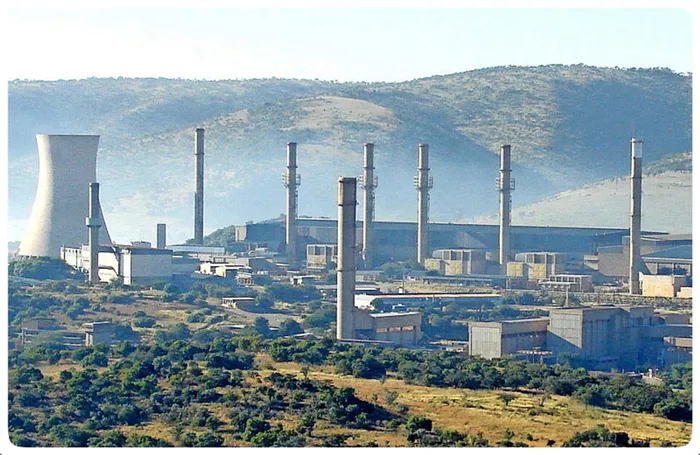
The Pelindaba nuclear research facility outside of Tshwane. The Nasdaq-listed ASP Isotopes has reach an agreement with the state owned Nuclear Energy Corporate of SA to produce high-assay low-enriched uranium.
Image: Supplied
ASP Isotopes Inc (ASPI), the Nasdaq-listed company that plans a JSE listing, intends to begin uranium enrichment at the Pelindaba nuclear facility through an agreement with the South African Nuclear Energy Corporation (Necsa).
ASPI, which is in the process of a share-for-share transaction with Renergen, the only onshore helium and liquid natural gas producer in South Africa, said in a pre-listing statement on Friday that the agreement is to collaborate on research, development, and ultimately the commercial production of advanced nuclear fuels. The company plans a secondary JSE listing on August 27.
“We believe the U-235 we may produce using QE (quantum enrichment) technology may be commercialised as a nuclear fuel component for use in the new generation of high-assay low-enriched uranium (HALEU)-fueled small modular reactors that are currently under development for commercial and government uses,” said ASPI’s directors in the statement.
In May 2025, ASPI entered into a loan agreement with TerraPower, as lender, and QLE TP Funding SPE, a subsidiary, as borrower, for a loan of up to $22 million to partially finance the proposed new uranium enrichment facility at Pelindaba, which can produce commercial quantities of HALEU, subject to the required permits and licenses being obtained.
The initial core supply agreement for the project was intended to support the supply of the first fuel cores for the initial loading of TerraPower's Natrium project in Wyoming, in the 2027/28 timeframe.
This initial supply agreement is currently valued at up to about $375 million over an 18-month timeframe, primarily dependent on the quantity of HALEU to be supplied and the firm fixed price for the HALEU.
The envisaged long-term supply agreement is a 10-year supply agreement of up to 150 metric tons of HALEU, commencing in 2028 and running through to the end of 2037, currently valued at up to about $3.75 billion, primarily dependent on the quantity of HALEU to be supplied over 10 years and the base price of HALEU.
Renergen shareholders approved a share swap scheme at a shareholder meeting on July 10, wherein each shareholder would receive 0.09196 ASPI shares for each Renergen share held, with no cash entitlement, save for fractional entitlements.
ASPI directors said the listing on the JSE would occur regardless of whether or not the share swap scheme with Renergen shareholders became unconditional.
ASPI’s share premium account reflected a value of $107.4m, and the market value of ASPI shares was around R15 billion ($831m).
ASPI said its proprietary technologies, the “Aerodynamic Separation Process” and Quantum Enrichment technology (QE technology), were designed to enable the production of isotopes used in several industries. Their initial focus was the production and commercialisation of enriched Carbon-14 (C-14), Molybdenum-100 (Mo-100), and Silicon-28 (Si-28).
Commercial production is starting at the C-14 and Si-28 enrichment facilities in Pretoria, South Africa. The production of commercial samples of highly enriched Yb-176 at the Yb-176 enrichment facility in Pretoria, South Africa, had commenced, they said.
“We expect our first three enrichment facilities to generate commercial products during 2025. In addition, we have started planning additional isotope enrichment plants both in South Africa and in other jurisdictions, including Iceland and the US,” the company stated.
The future development of ASP technology for the separation of Zinc-68, Xenon-129/136 for potential use in the healthcare end market is being considered, along with Germanium 70/72/74 for possible use in the semiconductor end market, and Chlorine-37 for potential use in the nuclear energy end market.
The future development of QE technology for the separation of Nickel-64, Gadolinium-160, Ytterbium-171, Lithium-6, and Lithium-7 is also being considered.
Visit:www.businessreport.co.za